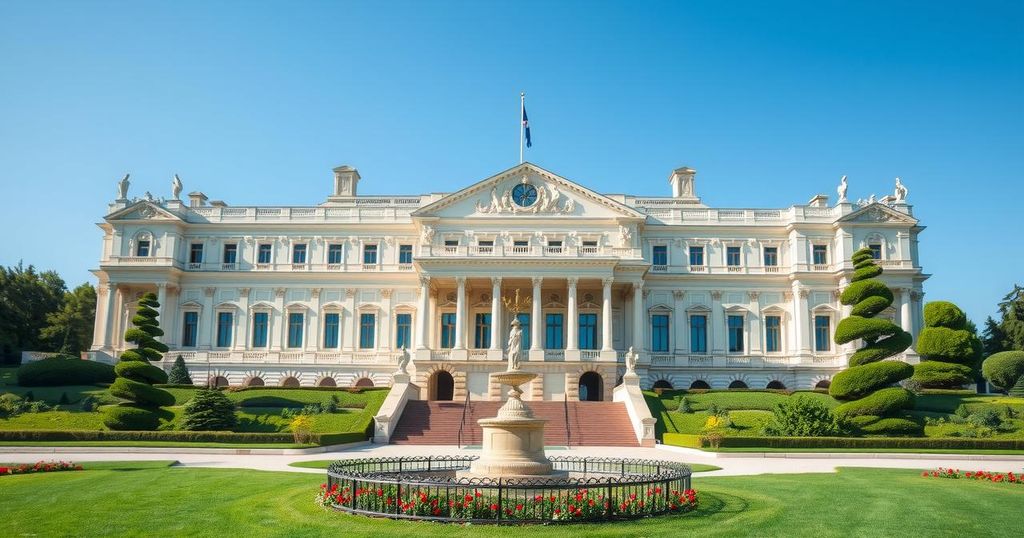Sudanese Army Regains Control of Presidential Palace from RSF

The Sudanese army has regained control of the presidential palace in Khartoum, lost to the RSF two years ago. The army’s advances include the capture of key buildings, while the RSF continues operations nearby. This conflict has caused significant humanitarian issues, including widespread displacement and food insecurity.
The Sudanese army has regained control of the presidential palace in Khartoum, remarkably two years after it was overtaken by the paramilitary Rapid Support Forces (RSF). The recapture was announced by the army-aligned government after they advanced towards the palace building located along the Blue Nile. Sudan’s Information Minister, Khaled al-Aiser, described the event on social media, proclaiming, “the palace is back and the journey continues until victory is complete.”
Originally seized in April 2023, the palace along with significant areas of the capital was claimed by the RSF as armed conflict erupted against Sudan’s army. Following the RSF’s takeover, the government, led by Army Chief Abdel Fattah al-Burhan, retreated to Port Sudan situated on the Red Sea coast. The palace comprises two main structures, an Ottoman-Egyptian building erected in 1825 and a larger edifice constructed in 2015 by former President Omar al-Bashir, both of which were damaged during the initial conflict.
In addition to the palace, recent military operations resulted in control over various ministries and critical buildings across central Khartoum, consolidating the army’s advances after significant territorial regaining from the RSF. However, the RSF asserted its continued presence near the palace, suggesting the conflict remains unresolved. Notably, hours following the palace’s recapture, a drone strike attributed to the RSF tragically killed three journalists who were reporting for state television.
The RSF has maintained significant control over the western Darfur region, where troubling reports, including a notable one by the Raoul Wallenberg Centre, indicate ongoing genocide against non-Arab groups. The United States has also levied accusations of genocide against the RSF and imposed sanctions on its leader, Mohamed Hamdan Dagalo (more commonly known as Hemeti). Significant concerns persist about the RSF’s recent establishment of a parallel government, reportedly with support from the United Arab Emirates, which raises fears of Sudan fracturing similarly to Libya. The ongoing conflict has caused over 10 million displacements and exacerbated food insecurity affecting more than 12 million people, with thousands killed in the violence.
In summary, the Sudanese army’s recapture of the presidential palace marks a significant shift in the ongoing conflict with the RSF, which has dominated key territory in Sudan. The situation remains volatile as the RSF still asserts its influence, especially in Darfur, amidst international accusations of genocide. With a substantial humanitarian crisis unfolding, it is imperative for global leaders to focus on resolution and stability in the region.
Original Source: www.middleeasteye.net








